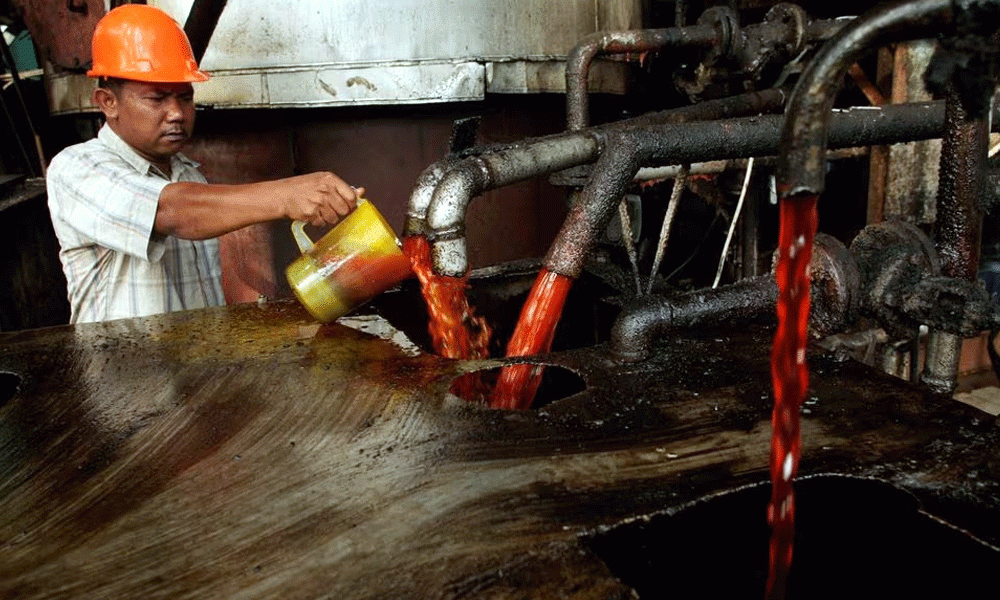SINGAPORE: Malaysian palm oil futures traded within a narrow range on Wednesday after touching their lowest in more than seven months, as investors weighed tighter inventories and firmer crude oil prices against weaker exports data and rival Dalian contracts.
The benchmark palm oil contract for October delivery on the Bursa Malaysia Derivatives Exchange held its ground at 3,693 ringgit ($834.95) a metric ton by the midday break.
It hit an intraday low of 3,638 ringgit, its weakest level since Jan. 9 earlier in the session.
The Malaysian Palm Oil Board said on Monday inventories in the world’s second-largest producer shrank to a four-month low in July. Analysts and traders expect a slowdown in demand to help stocks recover during the coming peak harvest season.
Oil prices climbed on Wednesday on estimates about shrinking inventories of U.S. crude and gasoline as the market watched for a possible widening of the Middle Eastern war, which could curtail global oil supplies.
India’s July palm imports surge to near one-year high on festive demand
Stronger crude oil futures make palm a more attractive option for biodiesel feedstock.
Malaysian palm oil exports for Aug. 1-10 fell 13.2% from a month earlier, according to estimates by cargo surveyor Societe Generale de Surveillance on Tuesday.
Dalian’s most-active soyoil contract weakened 1.9%, while its palm oil contract dropped 1.4%. Soyoil prices on the Chicago Board of Trade were up 0.9% after two days of decline.
Palm oil is affected by price movements in related oils as they compete for a share in the global vegetable oils market.
The Malaysian ringgit, palm’s currency of trade, strengthened 0.47% against the dollar. A stronger ringgit makes palm oil less attractive for foreign currency holders.
A bullish target range of 3,784 ringgit to 3,819 ringgit per ton has been aborted for palm oil, as the contract is poised to break support at 3,671 ringgit, said Reuters technical analyst Wang Tao.

Source: Brecorder





























